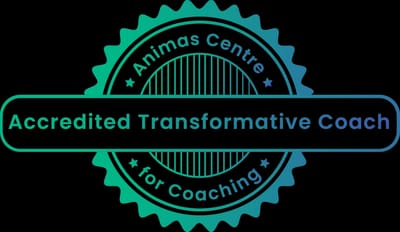Are you listening?
As human beings, we will all at one time or other have asked this question with varying levels of emotion ranging from frustration to concern to irritation to downright rage. In fact we all probably say it hundreds of thousands of times over a lifetime. To our children when they’re ignoring our requests for them to get ready for school; to our partners when we’re trying to express our feelings about something important; perhaps to our co-workers in a heated meeting where nobody is pulling their weight on a project; and maybe in helplessness as yet again a politician ignores the plight of the very people whose interests they are supposed to be taking care of.
But the fact is, many of us don’t listen well. We half-listen, interrupt, we sigh, we mentally plan what we’re going to have for dinner, we give our opinion, we better their story, we finish their sentences, because surely our own words are far superior to theirs?? Of course this is all quite normal in everyday conversation, but what about when our loved ones are communicating to us how they feel about something, or when our colleagues are trying to formulate a strategy or when our friends are talking about a problem that they want to solve? These are the times we really need to listen properly - with attention and purpose, interacting, not interrupting.
The power of being listened to is a mighty one. In her book ‘Time to Think’, Nancy Kline says
Listening...is enzymatic. When you are listening to someone, much of the quality of what you are hearing is your effect on them. Giving good attention to people makes them more intelligent. Poor attention makes them stumble over their words and seem stupid. Your attention, your listening is that important.
Giving people space to think out loud without interruption, allows them to ‘hear themselves think’. They are able to draw conclusions, become aware of options and if they’re lucky, experience epiphanies.

Funnily enough it doesn’t even matter if you are talking to an inanimate object. The crucial requirement is that you are not interrupted. Consider Tom Hanks’ character ‘Chuck’ in Castaway. His only companion is the volleyball that he names ‘Wilson’. And yet in talking out loud to Wilson, Chuck is able to process his thoughts, make critical decisions, and honour the memory of his fiancee. So important has this silent, non-interrupting, non judgemental object been to Chuck that when the ball falls off his raft in stormy seas, he jumps in to rescue it. He cannot rescue Wilson, but he himself is soon saved.
As Nancy Kline says
To be interrupted is not good. To get lucky and not be interrupted is better. But to know you are not going to be interrupted…. That is bliss.

How to listen well
Do not interrupt - please do not interrupt. Interrupting someone’s words is the equivalent of derailing a high speed train - the speaker’s thought process grinds to a halt, their thoughts wrecked and ruptured, almost impossible to get back on track. The moment is lost.
Only share your opinions, thoughts and judgements if you are asked for them.
Maintain eye contact - resist the temptation to look at your phone, yawn, look at the plane in the sky etc
Invite them to tell you more - give them the space to really open up. Allow their mind to wander, get curious, toss old ideas around and let new seeds germinate.
Next time you are called upon to listen, remember that to listen, to truly listen is the most sacred gift you can ever give to another person. It is a humbling and moving experience. Trust that they will come to their own solutions and decisions and never underestimate the power of your presence. Open your mind. Let go of the need to interrupt. Be more Wilson.
How beautiful and magical it is to be truly listened to. How magical and beautiful it is to listen.
If you would like a safe space to explore your feelings, please get in touch. I provide one on one coaching online or face to face (near Horsham, West Sussex).
From Autumn 2020 I will be running regular 6-10 week programmes on different themes including Life after Divorce, How to get Motivated, Reconnect with Your Authentic Self, Finding Happiness, Handling Difficult Decisions, and many more. These will take place in small groups of up to four people either at my home or online.
Please contact me on 07704 109806 or ruthgregorycoaching@gmail.com to register your interest.
Alternatively, if you’ve found this article interesting, sign up for regular newsletters or leave a comment below. Thank You.
Further reading
Time to Think - Nancy Kline
Never Split the Difference: negotiating as if your life depended on it - Chris Voss, former head of FBI International Hostage Negotiation
How to Talk so Kids Will Listen and Listen so Kids Will Talk - Adele Faber and Elaine Mazlish
